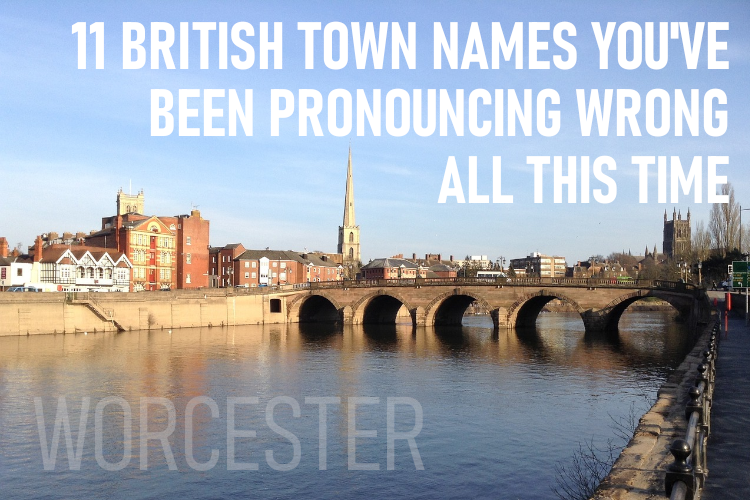
The Great Britain we know today is the result of thousands of years of settlement, invasion and conquest. From the prehistoric Britons and Gaels that initially inhabited the island, to the Romans, Saxons, Vikings, Normans and later kingdoms; each ruling group left cultural and linguistic elements that helped shape the rich tapestry of modern England, Scotland and Wales.
These traces extend not only to language, but to many of Britain’s historical towns that have their roots in one of these epochs.
Below are 11 such towns with historical names that most people, save for the locals, tend to mispronounce.
1. Gloucester

Gloucester is a city in the west of England, near the breathtaking Cotswolds region, that is renowned for its Gothic cathedral with beautiful stained-glass windows. The city dates back all the way to Roman times, when it was called Glevum. Later Anglo-Saxons changed the city’s name to Caerloyw, which means “bright fort” in Welsh. During the Middle Ages, the more common English variant, Gloucester, became more prominent and is still in use today.
| How NOT to pronounce it: | [GLOUW-chester] |
| Correct pronunciation: | [GLOS-ter] |
Pronunciation tip:
In English, place names with the suffixes -cester, -caster or -chester are usually indicative that the place is situated on the site of a former military fort or camp, usually of Roman origin (called a castrum in Latin or a caer in Welsh). In most cases, the suffix -cester in these place names is pronounced as -ster (stir) like in Gloucester. There is one notable exception, which we will get to later. Place names ending in suffixes -caster (like Lancaster) and -chester (like Dorchester, or the city of Chester) are pronounced regularly as it is read in English.
2. Norwich
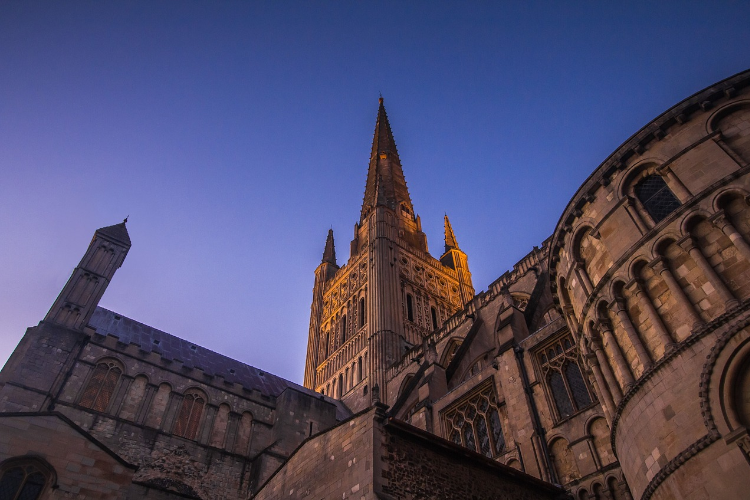
Norwich is renowned for being the most complete medieval city in England, with a rich history that dates back all the way to the Iron Age. At its height it was the second most powerful city in the country, after London. Apart from the beautiful architecture and ancient buildings, the city is also famous for its great shopping, lively market, family-friendly green spaces and just all-round livability.
| How NOT to pronounce it: | [NOR-witch] |
| Correct pronunciation: | [NORRICH] |
Pronunciation tip:
The suffixes -wich or -wick in English place names are often modern forms of the Old English wic (pronounced like “witch”), which means anything from “village” or “household” to “dwelling place”, “settlement”, “trading centre” or “harbour”. Most of the time however – English being the language that it is – the “w” is silent, though there is some debate as to why.
PS: In the case of Sandwich, the town in Kent, the “w” is not silent and the place name is pronounced like the snack. Anyone suddenly craving lunch?
3. Bournemouth
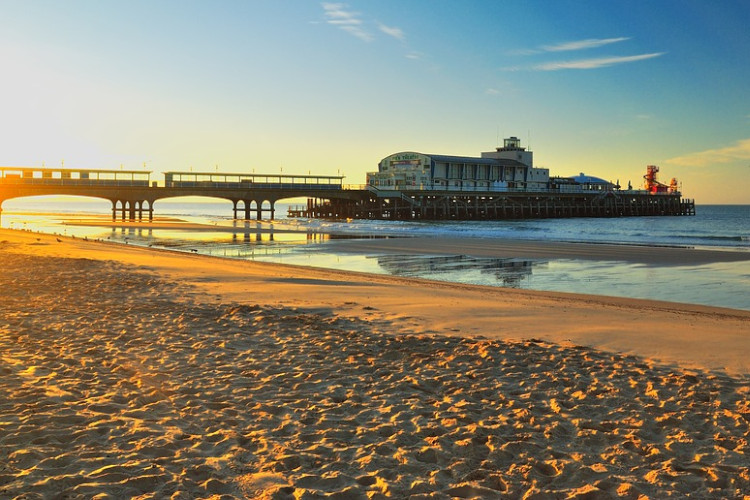
Bournemouth had its start more recently than some of the other entries on our list. Before 1810, when its founder, Lewis Tregonwell, built a house here, it was mainly deserted shrubland. It quickly grew into a village, which eventually grew into a town with the arrival of the railway. It was a popular Victorian-era spa and health resort, and is still one of the top coastal destinations in Britain.
| How NOT to pronounce it: | [BORN-MOUTH] |
| Correct pronunciation: | [BORN-muth] or [BORN-myth] |
Pronunciation tip:
Many of the towns and cities in the South of England (like Bournemouth, Plymouth, Falmouth etc.), were named after rivers, and end in the suffix -mouth since they were founded at the mouths of those rivers. Some of them, like Plymouth, were already inhabited during the time of Old and Middle English, when the word for “mouth” was “mūþ” (pronounced like “muth”). While Bournemouth is not as old as some of these, many of the Southern English dialects still retain strong influences from Old and Middle English times, at least in terms of pronunciation; which is most probably why it is still enunciated like this today. Some locals even drop the “n” when talking about their beloved city.
4. Islay
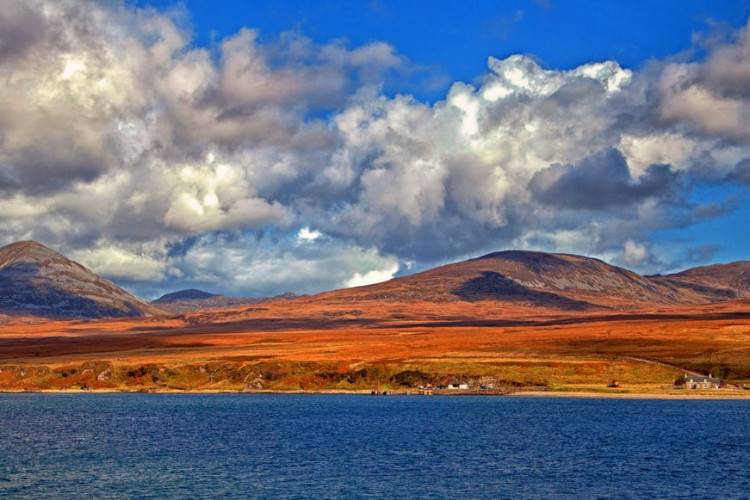
Islay is a beautiful island in the Inner Hebrides of Scotland, renowned for it’s world class whisky distilleries, golf and hiking trails. It is also renowned for having one of the most commonly mispronounced place names in all of Scotland.
| How NOT to pronounce it: | [IZ-lay] or [EYE-lay] |
| Correct pronunciation: | [EYE-la] or [EYE-luh] |
Pronunciation tip:
Because the “s” in island is silent anyway, you’re halfway there by leaving it out in this instance as well. But why the “y” in Islay is silent, well, that remains a mystery. In early Irish records the name of the isle was noted as Ile, or Íl in Old Norse. Later maps render it as Ila, which is probably where the modern pronunciation originated. If you know more about the origin of this one, leave us a comment below.
5. Worcester
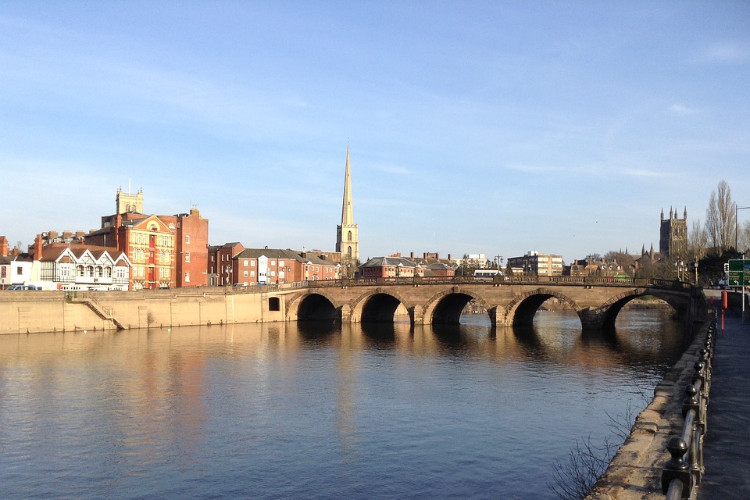
Worcester is a quaint cathedral city and university town in western England. It is famous as the home of Worcestershire sauce, luxury porcelain, what claims to be the oldest newspaper in the world, and as the site of the final battle in the English Civil War. It’s history dates back to Roman times, which is ironic when considering that most of us don’t know how to correctly pronounce its name after 2000 years…
| How NOT to pronounce it: | [WOR-ches-ter] or [WORSE-stir] |
| Correct pronunciation: | [WOOS-ter] |
Pronunciation tip:
With our first tip above you would’ve probably arrived at the correct “ster” pronunciation in the last part of the word. Without going into a seventy-page-long explanation as to how we’ve arrived at the modern pronunciation, just know that Worcester, like many British place names, has been heavily influenced by Norman French – a language in which spelling and pronunciation tended not to be the same. To help you pronounce it correctly: for most cities that end in -cester, but with only one syllable before the -cester suffix (like Worcester, Leicester and our example above, Gloucester), break the word into two syllables, and add the “ce” in -cester to the first syllable. So, for example: Worce-ster, not Wor-cester; or Leice-ster, not Lei-cester. Makes sense? In this specific case, just also remember that the Worce– portion of Worcester is not pronounced like “worse” or “wars” but as “woos”.
6. Cirencester
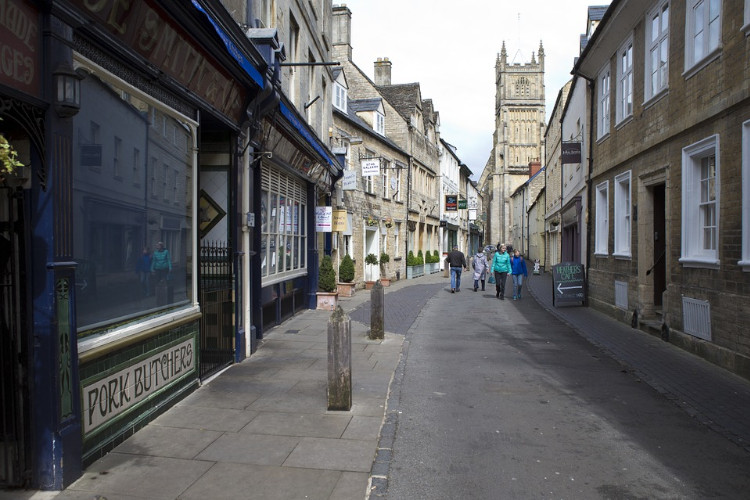
Time for our abovementioned exception (would it even be English without some exceptions?). The largest town in, and a popular gateway to, the beautiful Cotswolds; Cirencester is not only a pleasant weekend getaway near London, but also boasts being home to the Royal Agricultural University – the oldest college of its kind in the entire English-speaking world. The town has a long history with influences from Roman, Saxon, Norman and Tudor eras.
| How NOT to pronounce it: | [SI-ren-chest-er] or [SI-ren-stir] |
| Correct pronunciation: | [SI-ren-SES-ter] |
Pronunciation tip:
By now you definitely know how to pronounce place names ending in -cester, but here we have the notable exception mentioned earlier. Despite drawing its etymology from the same Welsh word caer which we’ve now encountered a couple of times; most sources tend to agree that the actual pronunciation of Cirencester has to do with how the Normans mispronounced the Anglo-Saxon name of the town: Cirrenceastre. Whatever the explanation, this time it actually is pronounced Siren-Sester.
7. Frome
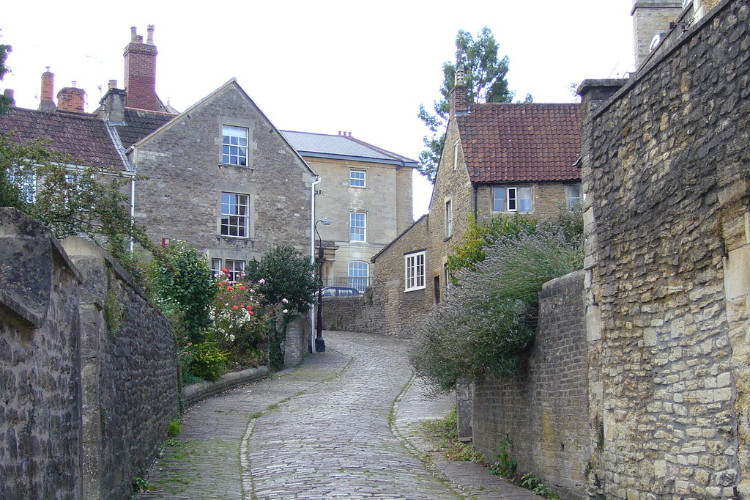
“Oh,” we hear you say, “This one will be easy! It’s Frome, right?” Read on. Located about 20 minutes south of Bath, Frome is a quaint town in Somerset that frequently tops lists of best small towns to live in and visit in the entire UK. It has a vibrant arts scene and many festivals or events are held in and around town annually. Frome has also been crowned the town in the UK with its name most often mispronounced. Here’s why:
| How NOT to pronounce it: | [FROME] or [FROAM] |
| Correct pronunciation: | [FROOM] |
Pronunciation tip:
The town’s name was derived from the ancient Brythonic word frama (or ffraw in Welsh), which means “fair” or “fine” and was used in reference to the river that flows through it. That still does not explain the incredibly confusing pronunciation, though, and we can only assume it stems from some strange transliteration of its original name. This begs the question, though: with which implement would you sweep in this town, a brome?
8. Ballachulish
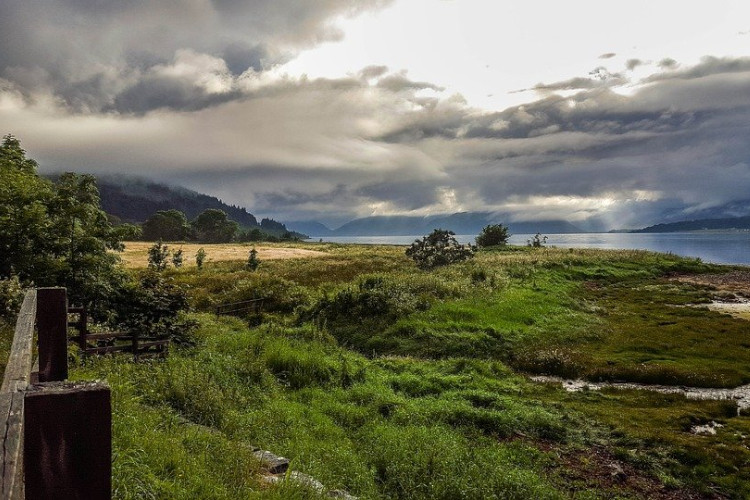
This one is for anyone who has ever dreamed of visiting the Scottish Highlands. The pretty village of Ballachulish is located just a stone’s throw from another pretty village known as Glencoe, both of which are popular locales from which to explore the otherworldly surrounding mountains, crags, lochs and valleys. The only thing that could perturb the absolute serenity of this village, is the incorrect pronunciation of its name by unsuspecting visitors.
| How NOT to pronounce it: | [bel-la-CHOO-lish] |
| Correct pronunciation: | [ball-a-HOO-lish] |
Pronunciation tip:
Naturally, the name of this village is derived from the Scottish Gaelic Baile a’ Chaoais, which means “settlement on the straight”. While the correct pronunciation doesn’t differ as dramatically from how one would be tempted to pronounce it, the village has recently been named the second most difficult place name to pronounce in the UK (after Frome), and the hardest in Scotland specifically.
9. Reading
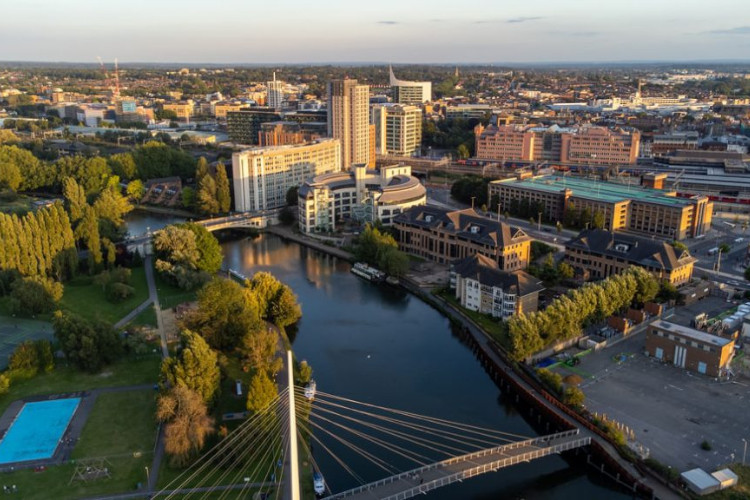
Nestled at the confluence of the Thames and the Kennet rivers, Reading is a large market town in the historical county of Berkshire. It is an important commercial centre, being home to the UK head offices of some very big global names in IT and insurance. Apart from being renowned as the location for one of the largest music festivals in England, Reading is also renowned for its confusing name.
| How NOT to pronounce it: | [READ-ing] |
| Correct pronunciation: | [RED-ing] |
Pronunciation tip:
The town’s name has nothing to do with the present continuous form of the verb “to read”. The town actually got its name from the Anglo-Saxon tribe known as the Rēadingas, whose capital was Reading. This “ēa” sound in Old English is a diphthong that sounds almost like an “ah” sound; but as the English language continued to evolve, so did the pronunciation of certain sounds, while the spelling remained true to its roots. Fast-forward to today, and you’re here; reading Reading as Redding.
10. Alnwick
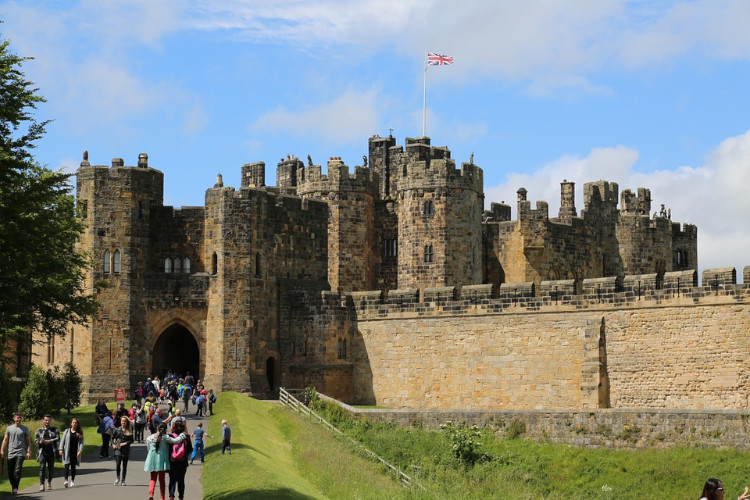
This market town in breathtaking Northumberland, England, is famous for it’s castle which has appeared in some notable movies such as the first two Harry Potter films and Robin Hood: Prince of Thieves. The town also has a rich history as the setting for some prominent battles between England and Scotland, and is famous as the site where Malcolm III of Scotland was killed during the (first) Battle of Alnwick.
| How NOT to pronounce it: | [ALN-wick] or [AL-nick} |
| Correct pronunciation: | [ANNICK] |
Pronunciation tip:
The town derived its name from the river Aln, which runs just north of it. You’ll recall from Norwich that the suffixes -wich or -wick normally talk about a settlement or dwelling place in Old English, and often features a silent “w”. That same omission applies here; HOWEVER, despite the river being pronounced as “Aln”, as it is read; in the case of Alnwick, even the “l” is silent. If you know of a logical reason why the “l” should also be silent, leave us a comment below. Until then, we’ll assume it was purposefully made silent so the locals can silently laugh in our faces when we try to pronounce it.
11. Llandudno
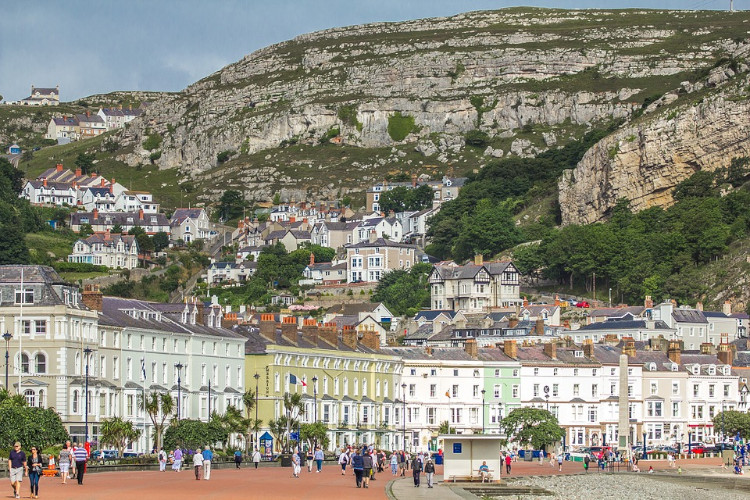
No list of mispronounced places in Britain would be complete without including at least one option from Wales. While non-native English speakers will have a hard time correctly pronouncing just about all Welsh town names, the coastal town of Llandudno, as the largest seaside resort in Wales, deserves to have visitors pronounce its name correctly.
| How NOT to pronounce it: | [lan-DUD-no] or [klan-DUD-no] |
| Correct pronunciation: | [hclan-DID-no] |
Pronunciation tip:
Let’s start with the easy part – the middle syllable is pronounced like “did” instead of “dud”. Now for the hard part: a double “L” in Welsh is normally not pronounced like it would be in English, which doesn’t have a natural equivalent sound. It also doesn’t sound like the hard “k” sound sometimes used in news reports. To get close, press your tongue against the roof of your mouth. Now, try to say the letter “s”, but with a briefly aspirated “h” before the “s”. Now, picture the “ch” sound in the Scottish “loch”, and wedge that in with the aspirated “s” when saying it out loud. CHLANdidno. HCLANdidno. Oi, close enough…
Now that you know how to correctly pronounce these British place names, you’re set to sound just like a local while visiting. Want to see the correct pronunciation of any other hard-to-pronounce places? Let us know in the comments and we’ll do a follow-up!

Leave a Reply